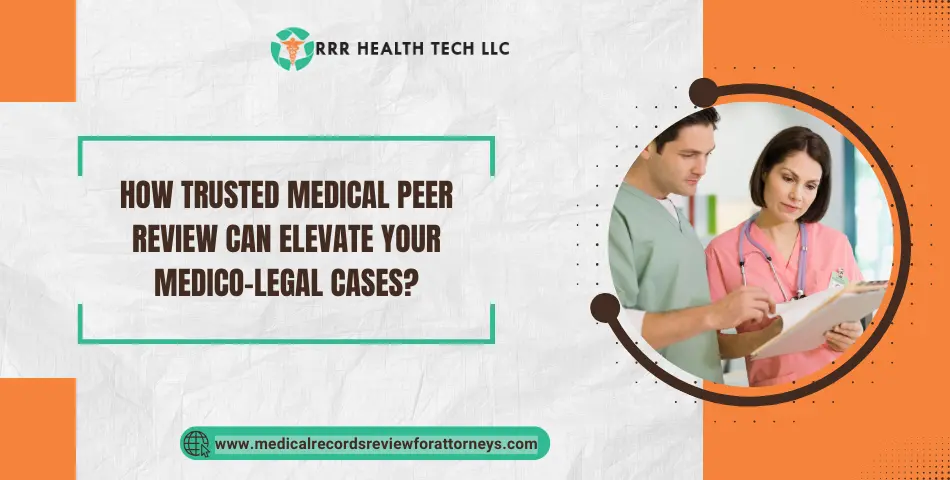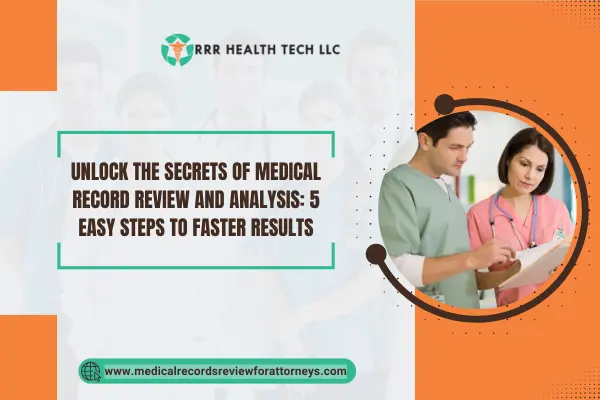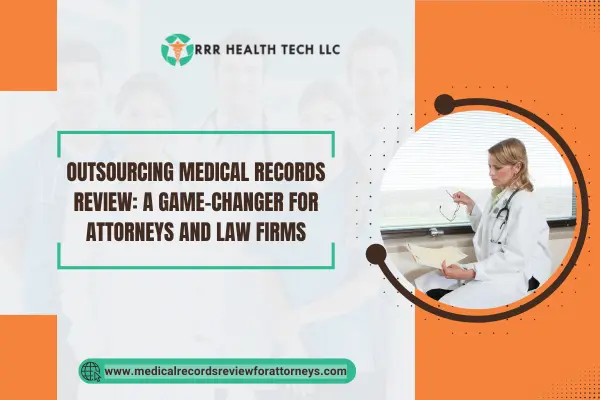
Credibility and accuracy are crucial in medico-legal cases. Attorneys dealing with personal injury, medical malpractice, and workers’ compensation cases need accurate medical records to support their claims. Verifiable medical opinions, claims, and standards of care verification depend on the trusted medical peer review that validates claims. This article discusses the role of clinical peer review in different legal cases and the impact of technology on the medical peer review process.
Understanding Medical Peer Review
Medical peer review is a specialized evaluation by a group of peers or experts in a particular field of medicine to evaluate the reasonableness of treatment provided, the alleged resulting damage, and the overall standard of care. This process offers objective medical opinions that are valuable for and assist in the efforts of a medical peer review attorney, or a physician peer review attorney with case preparation.
The medical peer review procedure usually involves the following steps:
- Case Selection: The collection of the patient’s medical history, test results, and treatments administered.
- Expert Analysis: Physicians evaluate the medical information provided against the requirements of the profession.
- Report Generation: Document detailing the findings and medical opinions is prepared.
- Legal Compliance: A post-review report is analyzed and integrated into the legal proceedings by the attorneys.
A third-party medical peer review can be done by other medical legal review companies, medical claims peer reviewers, and physician peer review firms as independent evaluators.
The Role of Medical Peer Review in Different Types of Medico-Legal Cases
1. Personal Injury Cases
With personal injury assistance reviews, a medical peer review establishes the causation of damage, verifies reasonability of treatment, and settles the question of whether the medical intervention was necessary. Attorneys appreciate this as it guarantees that their customers can obtain the appropriate settlements for their cases.
2. Medical Malpractice Cases
Defining medical malpractice shows the lapses in the requirement and the standard of care. The flowchart of the medical staff peer review process directs reviewers on whether the patient’s condition is due to the provider’s fault. A documented medical peer review helps establish the parameters of proof necessary in a legal case.
3. Worker’s Compensation Cases
In the case of insurance peer review for workers’ compensation claims, the medical review claim specialists determine if the injury is job-related, whether the treatments are necessary and what the probable outcomes of the medical conditions are. This allows the employees and the insurers to understand the correct principles when making compensation payments.
Leveraging Technology in Medical Peer Review Services
1. Streamlining Processes with AI
Artificial Intelligence (AI) enhances peer review by automating the extraction of information, organizing medical files, and finding errors. This brings efficiency to the medical management clinical peer review, which reduces holdups in the courts.
2. Enhancing Accuracy with NLP and Machine Learning
NLP along with machine learning assists in increasing the accuracy of clinical peer reviews by finding deep-seated patterns in medical records. This technology reduces human mistakes and increases the trustworthiness of medical claims made by peer reviewers.
Quality Control Protocols in Medical Peer Review Services
To preserve their reputation, medical peer review companies tend to apply strict quality control protocols such as:
- Multi-Level Review: Achieving coherence and consistency between several physician reviewers.
- Standardized Templates: Creating report forms using a medical peer review template.
- Regular Training: A peer review committee of physicians reviews complex cases to remain unbiased and equitable.
Conclusion
A trusted medical peer review service is capable of influencing medico-legal cases by conducting ascertainable medical evaluations, countering the legal position, and providing the desirable effect on the cases. The incorporation of AI-based technologies enables the attorneys and the medical peer review services to enhance their precision and neutrality while simplifying their workflows.
FAQs
What is a peer review in the medical field?
A peer review in the medical field is an evaluation performed by healthcare practitioners which is designed to check clinical judgements, the treatment process, and if the relevant medical attention was given.
How do I write a medical peer review?
To write a medical peer review, go through the medical staff peer review process flowchart, maintain bias control, conduct a medical record review, perform a gap analysis, and report all conclusions reached within a medical peer review form.
What are some examples of peer review?
Medical peer review examples include:
Some examples of medical peer review include physician peer review related to malpractice cases or claims, insurance peer review concerning the medical necessity, and clinical peer review related to the assessment of the quality of a hospital’s services.
Need Expert Medical Peer Review Services?
Reach out to some of the best medical record review companies and physician peer review firms to consolidate your medico-legal cases. Get in touch today and see how our medical peer review services can improve your legal case strategies.


